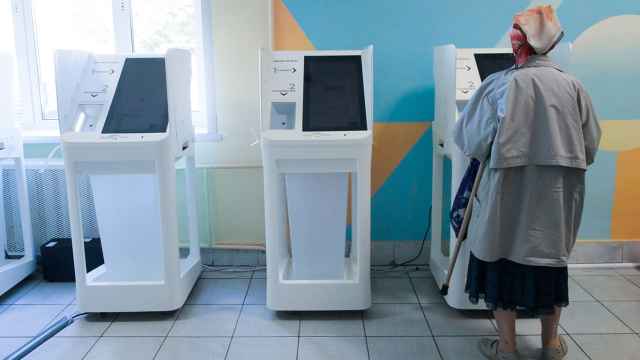This year, World Cancer Day will focus on dispelling damaging myths about the disease. This offers an opportunity to reflect on cancer's true consequences and enhance global prevention and treatment efforts.
One prevailing myth is that cancer is primarily a developed-country problem. But while it is true that cancer is pervasive in wealthy countries, people in the world's poorest countries lose more years of life to the disease. As medical advances and technological developments have helped cancer patients in high-income countries to live longer, those in low-income countries continue to die young.
Besides being unjust, this is deeply tragic. Having eluded killers like malaria and AIDS, one should not then be killed prematurely by cancer, especially a form of cancer that could have been prevented with something as simple and as affordable as a vaccine.
The often-overlooked link between vaccines and cancer highlights a second common misconception: that fate alone (and perhaps smoking) determines who gets cancer. In fact, one in six cancer cases worldwide is caused by a known infectious agent, with the proportion rising to one-third in some countries in sub-Saharan Africa.
Cervical cancer now kills more women than childbirth, claiming a life every two minutes. Of the 275,000 women who die of cervical cancer annually, 85 percent live in the world's poorest countries. After all, cervical cancer tends to target the most vulnerable in particular, such as women infected with HIV.
Then there is hepatitis B, which is more than 50 times more infectious than HIV and often passed from mother to child before or shortly after birth, increasing the likelihood of liver cancer later in life. An estimated 2 billion people alive today have been infected with hepatitis B, while 350 million people are chronically infected. Of these, roughly one-quarter will die from hepatitis-B-related liver cancer or cirrhosis.
The good news is that powerful tools are available to avert many of these deaths. Existing HPV vaccines can prevent up to 70 percent of cervical cancer cases, and new vaccines are in the pipeline that will improve this record. Likewise, hepatitis B vaccines are 95 percent effective at preventing infection and its chronic consequences.
But paying for and delivering these vaccines to the most vulnerable citizens of low-income countries poses a significant challenge. Although the World Health Organization has recommended inclusion of the hepatitis B vaccine in routine immunization since 1992, the vaccine's high cost was initially prohibitive in some developing countries.
Since its launch in 2000, the GAVI Alliance has sought to increase access to life-saving vaccines for the world's poorest children. In partnership with the World Bank, the World Health Organization, UNICEF and the Bill & Melinda Gates Foundation, it has used innovative financing tools to raise funds for global immunization programs while working with industry to lower vaccine prices.
By including the hepatitis B vaccine as part of a pentavalent vaccine, the alliance has already facilitated its delivery to children in 70 countries as part of routine immunizations. The alliance is now working to make the HPV vaccine available to more than 30 million of the world's poorest women and girls by 2020. As part of this effort and coinciding with World Cancer Day, it has started demonstration programs in eight developing countries.
A growing body of evidence shows that vaccines' benefits extend beyond prevention of illness and death. They have also been found to aid infants' cognitive development and children's educational attainment, thus boosting countries' economic-growth potential. In the fight against cancer, medical advances can shave precious percentage points off mortality rates, which implies that improved access to vaccines can have a massive impact, slashing the number of future cases in developing countries.
People in rich countries are familiar with the maxim that prevention is better than cure. But given the ready availability of vaccines in developed countries, the focus of prevention efforts has shifted to changing cancer-causing lifestyles.
Meanwhile, people in developing countries lack access to simple and effective tools for preventing several of the most common cancers. Improving access to vaccines is crucial to addressing this global inequity and reducing the widening gap between rich and poor. This requires, first and foremost, dispelling the myth that one cannot "catch" cancer.
Seth Berkley is CEO of the GAVI Alliance. © Project Syndicate
A Message from The Moscow Times:
Dear readers,
We are facing unprecedented challenges. Russia's Prosecutor General's Office has designated The Moscow Times as an "undesirable" organization, criminalizing our work and putting our staff at risk of prosecution. This follows our earlier unjust labeling as a "foreign agent."
These actions are direct attempts to silence independent journalism in Russia. The authorities claim our work "discredits the decisions of the Russian leadership." We see things differently: we strive to provide accurate, unbiased reporting on Russia.
We, the journalists of The Moscow Times, refuse to be silenced. But to continue our work, we need your help.
Your support, no matter how small, makes a world of difference. If you can, please support us monthly starting from just $2. It's quick to set up, and every contribution makes a significant impact.
By supporting The Moscow Times, you're defending open, independent journalism in the face of repression. Thank you for standing with us.
Remind me later.





